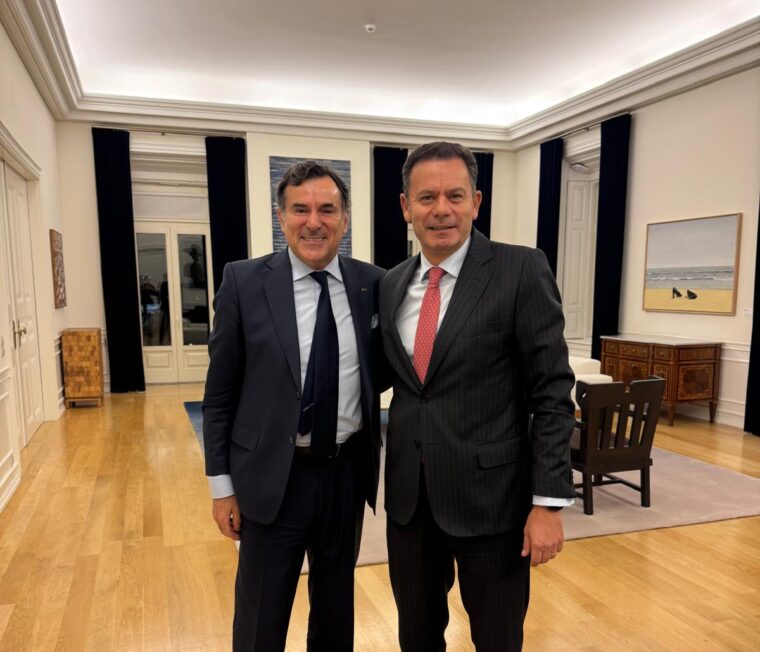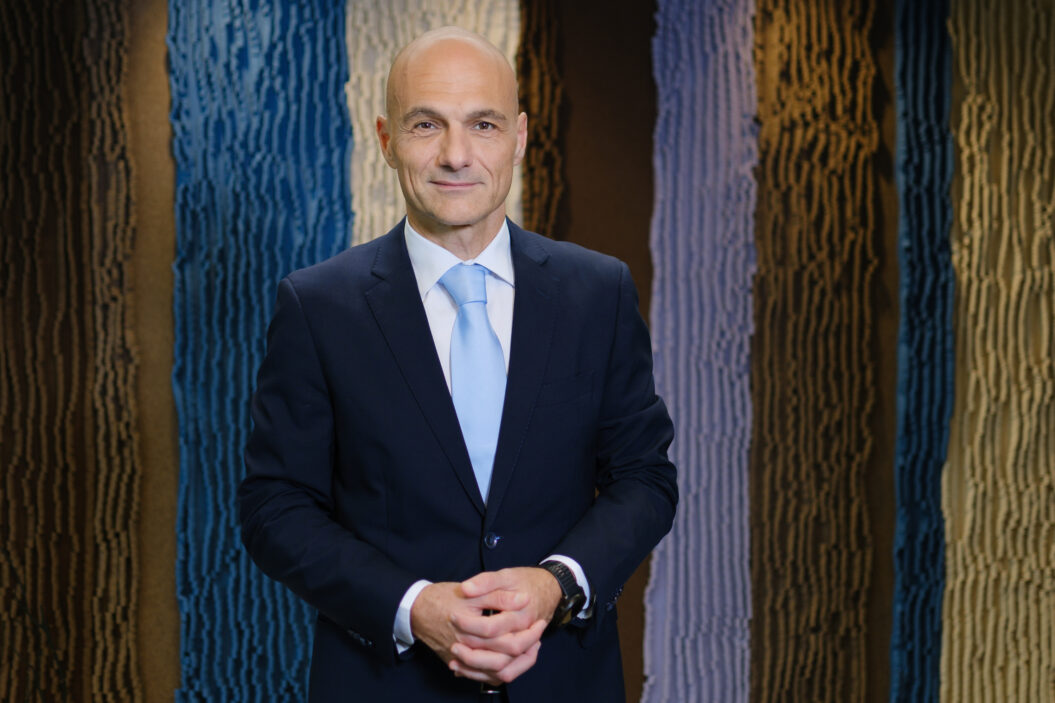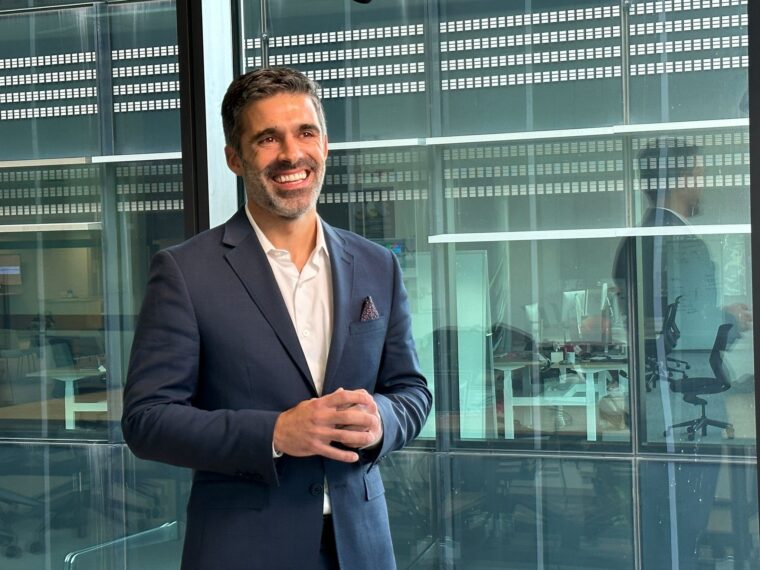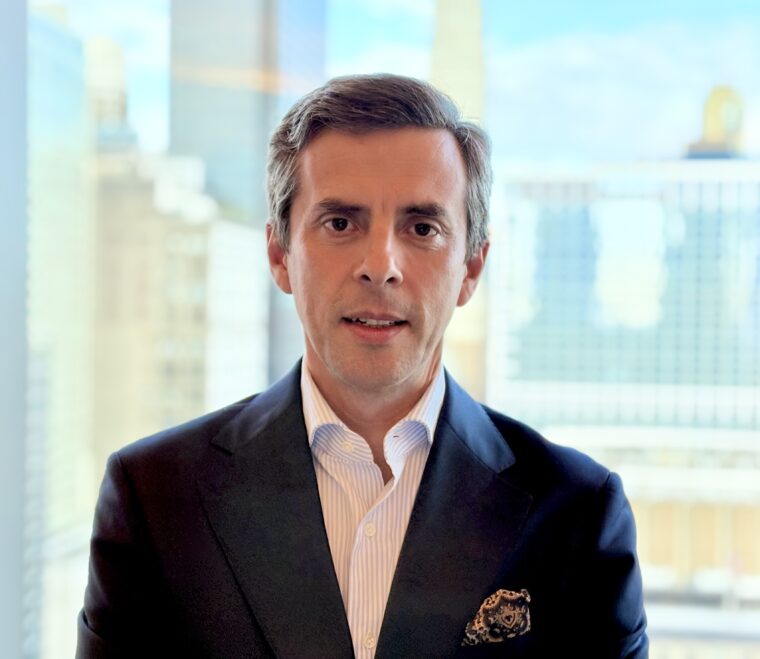As part of the partnership between the Portuguese Diaspora Council and Jornal de Negócios, Miguel Teixeira, CEO Ibéria, International Organizations, LATAM and Consulting in Benelux and France in NTT DATA Inc., and Counselor of the USA Regional Hub, was interviewed by Jornal de Negócios. In the interview, Miguel Teixeira discussed his professional journey and identified competitive opportunities for Portugal, its economy, companies, and entrepreneurs in general.
1 – WHAT LED YOU TO LEAVE PORTUGAL?
Leaving Portugal was a well-considered decision, motivated by several factors. First and foremost, a new professional challenge arose that allowed me to broaden my knowledge and experience, as well as to engage with new realities—something I consider essential for ongoing personal and professional growth.
In addition, after six years as CEO of a company I deeply admire, I realized that in order to bring fresh ideas and ensure long-term sustainability, it was necessary to seek out new perspectives.
Finally, it was also a family decision: I wanted to give my daughters a more global view of the world, with experiences that would help them grow with an open and international mindset.
2 – WHAT ADVANTAGES OR DISADVANTAGES HAS THE FACT THAT YOU ARE PORTUGUESE BROUGHT YOU?
Being Portuguese in an international role brings both challenges and opportunities. The economic and geopolitical scale of one’s home country can project a certain bias—albeit subtle and entirely human—which may initially influence how an executive’s authority and impact are perceived, either positively or negatively.
On the other hand, being from Portugal also carries inherently positive values, such as integrity, adaptability, and strong multicultural competence.
When someone from a country with less international visibility reaches a prominent position, it often sparks curiosity and respect. In many cases, that background is seen as a differentiating asset—proof of someone who had to excel in a more demanding context. And that, in itself, can become a competitive advantage.
3- WHAT OBSTACLES DID YOU HAVE TO OVERCOME AND HOW DID YOU DO IT?
Throughout my international career, I have faced various challenges, but I have always relied on two fundamental tools. The first was staying true to my principles. I believe that, at the end of the day, a person is a person—regardless of the country or company—and that organizational success depends primarily on people and the culture in which they operate. I never compromised my values just to gain easier recognition.
The second was curiosity: I consistently sought to understand the “alphabet” of each country—its culture, its history, and how these shape behaviors. I didn’t change my core beliefs, but I did adapt my communication style, adjusting the path or language in order to reach the same destination, always with purpose in mind.
4 – WHAT DO YOU MOST ADMIRE ABOUT THE COUNTRY YOU ARE CURRENTLY IN?
I’ve had the privilege of living in Chile and, currently, in the United States—two very different countries, each with aspects I deeply admire.
In Chile, I was struck by the resilience and liberal spirit that have shaped the country over recent decades. I lived there during the pandemic and was vaccinated before my own parents in Portugal, which speaks volumes about the efficiency of the healthcare system. Companies, even with some state support, had to reinvent themselves. A remarkable example was LATAM Airlines, which, without government assistance, managed to rebuild—a true symbol of perseverance.
In the United States, I admire the culture of not being afraid to fail. There is genuine respect for those who try to do things differently, regardless of the outcome. The entrepreneurial spirit, the ability to relearn, and the focus on “doing what’s right” rather than simply “doing things right” are deeply rooted values. And despite its imperfections, there’s a powerful and rare sense of collective pride in being American—something that continues to unite the country.
5 – WHAT DO YOU ADMIRE MOST ABOUT THE COMPANY / ORGANIZATION YOU ARE IN?
What I admire most about NTT DATA is its ability to combine a strong Japanese identity with deep respect for the uniqueness of each region.
This cultural sensitivity is reflected in a management approach that values integrity and prioritizes a medium- to long-term vision—something increasingly rare in the business world.
In my region specifically, I would highlight the clarity with which the importance of talent and organizational culture is recognized. Working alongside leaders with an entrepreneurial spirit—who, over the past 30 years, have helped build this company—is deeply inspiring.
This combination of vision, respect, and authenticity is, in my view, one of the company’s greatest assets.
6 – WHAT RECOMMENDATIONS DO YOU HAVE FOR PORTUGAL, ITS ENTREPRENEURS AND MANAGERS?
My main recommendation is to genuinely care for the talent and culture within your organizations. The best people stay where they feel valued, challenged by those who inspire them, and where they have room to grow every day. It’s essential to give people freedom—while demanding commitment, responsibility, and excellence—not by treating everyone the same, but by recognizing each individual’s merit and potential.
It’s equally important to foster curiosity, to learn from different generations, to listen to diverse perspectives, and to have the courage to make tough decisions when necessary.
When all of this comes together, it creates an environment that retains top talent—and top talent attracts more of the same.
Poor performers, when left unchecked, not only fail to attract others—they often drive the best people away.
7 – IN WHICH SECTORS OF THE COUNTRY WHERE YOU LIVE CAN PORTUGUESE COMPANIES FIND CUSTOMERS?
I work in the technology sector, and it’s precisely there that I see strong opportunities for Portuguese companies in the United States.
Portugal already has several unicorns that have entered this market—not only because of its business volume potential, but also due to the growth opportunities and openness to innovation.
Most of these companies operate in niche areas with a strong focus on innovation, but even in its more traditional sectors, the U.S. market values what comes from abroad—as long as it brings real value.
There is no bias against origin, but there is a clear demand for impact.
That’s why I believe Portugal must position itself with a balanced value proposition that combines differentiation and competitiveness.
We are not—nor should we be—a country that competes on cost.
Our strength lies in talent, creativity, and the ability to deliver high-quality, forward-thinking solutions.
If we enter this market solely with a price-driven mindset or as a “commodity” player, we will struggle to succeed.
8 – IN WHICH SECTORS IN PORTUGAL COULD COMPANIES IN THE COUNTRY WHERE YOU ARE WANT TO INVEST?
I believe that one of Portugal’s greatest assets for attracting foreign investment—particularly from the United States—is its human capital.
The country is increasingly positioning itself as a true ValueShore destination—not only because of the highly qualified talent emerging from its universities, but also thanks to the attractive quality of life, which helps retain and attract top professionals.
While tourism remains one of our flagship sectors, I see enormous potential for Portugal as a bidirectional tech hub.
We have a culture of rapid technology adoption, which makes us an excellent testing ground and scale-up environment for innovative solutions.
This is especially relevant for companies looking to test, adapt, and then expand globally.
Portugal can and should position itself as a strategic partner for companies that value talent, innovation, and agility—not just as an investment destination, but as a true platform for growth.
9 – WHAT IS THE COMPETITIVE ADVANTAGE OF THE COUNTRY YOU ARE IN THAT COULD BE REPLICATED IN PORTUGAL?
One of the greatest competitive advantages of the United States—and one that could be replicated in Portugal—is its strong orientation toward innovation.
Here, failure is not seen as defeat, but as a natural part of the learning and growth process. This lack of stigma around failure creates an environment where people experiment more, take more risks, and, as a result, innovate more.
It would be valuable to find a better balance between the European social model—which is important and should be preserved—and stronger incentives for private initiative and merit-based recognition within companies.
Valuing those who stand out, who take risks, and who choose to build something is essential to accelerating progress.
With the speed at which artificial intelligence is transforming the world, adoption will not happen without agility—and without a certain tolerance for risk.
Portugal has the talent and the creativity; what’s sometimes missing is the right environment for those qualities to flourish with global ambition.
10 – ARE YOU THINKING OF RETURNING TO PORTUGAL? WHY?
Yes, I do plan to return to Portugal.
Before being professionals, we are people — and for me, family, friends, and our traditions hold immense value. I miss them deeply, and that is the reason — the only reason — why I will return without hesitation.
When I do, I hope to bring with me the experience I’ve gained and, who knows, contribute a small “grain of sand” to our country.
I’ll return with renewed energy, because I believe no role or position should be permanent.
I enjoy learning, evolving — and I know that’s essential, both for myself and for any organization.







